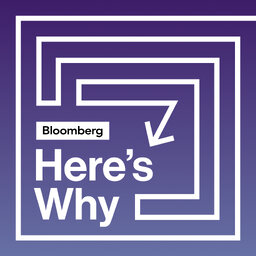The GOP and Hunter Biden and Roe One Year Later
We explore the GOP's focus on Hunter Biden and the political implications of their investigations. Bloomberg Opinion's Jonathan Bernstein joins. Columnist Lisa Jarvis joins to discuss the impact of overturning Roe v. Wade one year later. Columnists Conor Sen and Justin Fox also discuss their columns on stagflation and work productivity. Amy Morris hosts.
In 1 playlist(s)
Bloomberg Opinion
Deeper conversations on the week's most significant developments. Tune in and join in!Social links
Follow podcast
Recent clips

Introducing 'Here's Why' - Complex News Stories Explained
00:30

Airline Mergers and Restaurant Loyalty
35:20

Fossil Fuel Use and Drug Development
35:28
 Bloomberg Opinion
Bloomberg Opinion